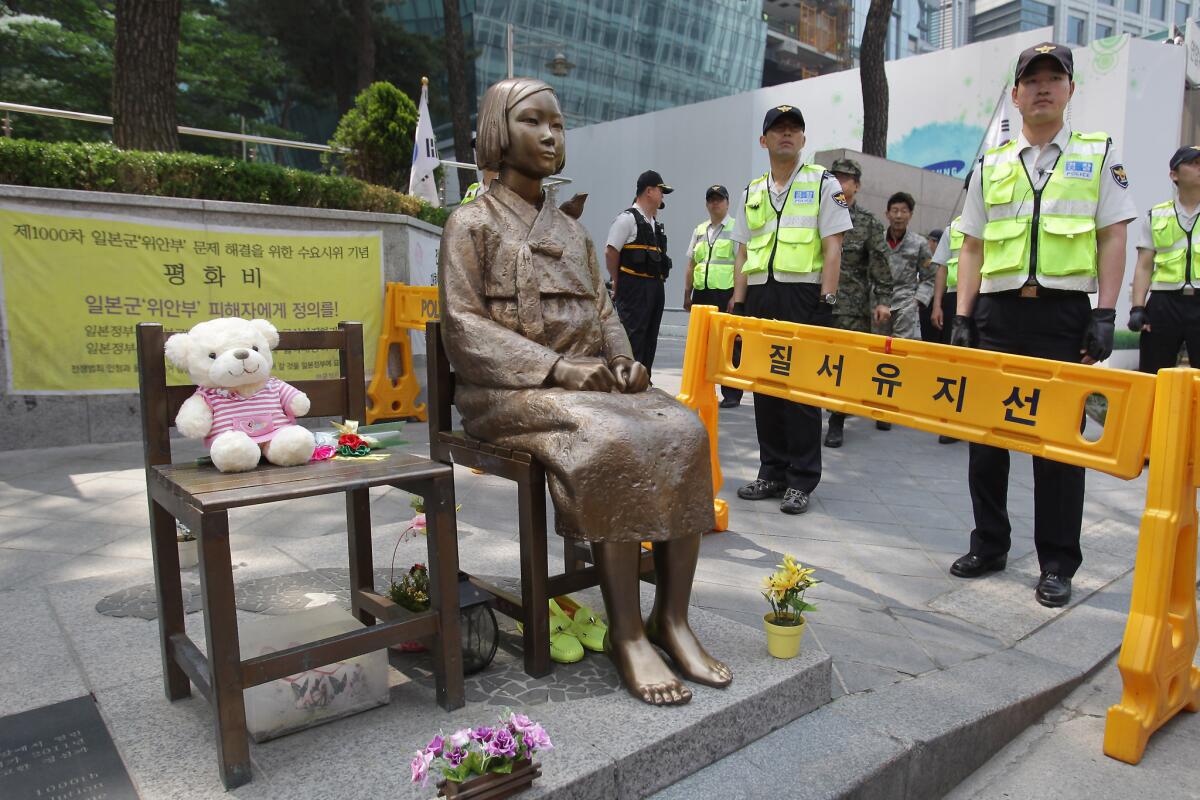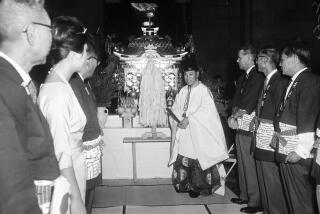L.A. Now Live: ‘Comfort women’ and Glendale’s statue controversy

- Share via
When Glendale officials proposed a memorial to “comfort women” — sex slaves who served the Japanese army in occupied countries during World War II — they saw it as a quiet gesture of goodwill for the city’s Korean community.
But city leaders soon realized that they had stepped into a major international controversy.
Join us at 9 a.m. as we discuss Glendale’s memorial and the backlash city officials have received with Times reporter Jack Dolan.
Glendale officials have been bombarded with hundreds of angry emails, mostly from Japan, accusing them of falling for “anti-Japan propaganda” and calling the Korean women, many of whom say they were abducted from their homes as teenagers, “liars” and willing “prostitutes.”
The planned statue shows a young girl seated next to an empty chair: a symbolic memorial to the estimated 80,000 to 200,000 women, mostly from Korea, who spent the war in Japanese military brothels serving up to 50 men per day.
Proposed memorials in New Jersey, New York and Singapore faced similar organized opposition.
The uproar has left Glendale officials stunned but undeterred. The City Council late Tuesday approved the statue despite the opposition.
“A 14-year-old girl doesn’t voluntarily leave her village in Korea to go serve the Japanese army, give me a break,” said Councilman Frank Quintero, who said he was surprised that such a “low-key” memorial could stoke such fury. “We never intended to kick up a hornet’s nest,” he said.
More to Read
Sign up for Essential California
The most important California stories and recommendations in your inbox every morning.
You may occasionally receive promotional content from the Los Angeles Times.













